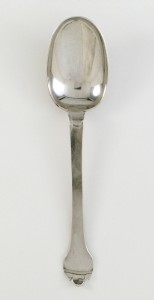Recently, there has been heated debates in regards to the topic of economic standings. In talking about this matter, there are many terms that are often associated. In Korea,
there are terms “gold spoon” and “dirt spoon” to talk about the different economic standings.  Similarly, in the United States, there are “silver spoon” and “plastic spoon.” Spoons are actual tools for food consumption, and the material of the spoon signifies one’s wealth. Along with “gold spoon,” the “silver spoon” is used to refer to wealthy people, especially those with inherited wealth who already have their fancy future planned and waiting for them. It is interesting to see how two cultures that seem to have extremely different cultural values have similar standing views on the wealth and the poor — the wealthy, especially the ones that have “been born with a silver spoon in his mouth” are often marked by scathing criticism.
Similarly, in the United States, there are “silver spoon” and “plastic spoon.” Spoons are actual tools for food consumption, and the material of the spoon signifies one’s wealth. Along with “gold spoon,” the “silver spoon” is used to refer to wealthy people, especially those with inherited wealth who already have their fancy future planned and waiting for them. It is interesting to see how two cultures that seem to have extremely different cultural values have similar standing views on the wealth and the poor — the wealthy, especially the ones that have “been born with a silver spoon in his mouth” are often marked by scathing criticism.
This is because there are no communities where there are no gaps between the wealthy and the poor. When there is a group of people, some will be richer than others inevitably. Yet, the problem is not the literal state of there being the gap. It is rather the consequences that occur accordingly to one’s economic standings. The rich will always be rich and the poor will continue to be poor.
After industrialization, the route of a “plastic spoon” transitioning his way up to a “silver spoon” was education. Higher education meant better jobs, and therefore, higher salaries: end of poverty. After the demolition of social hierarchy systems that divided among classes and provided limitations, the society is now considered to have advanced into an environment that provides equal opportunities for success for everyone.
However, the education system which served as the boosting point of the economic state is slowly falling apart and does not serve as a route for the transition anymore. Research has proven that parents with college degrees have children who eventually end up getting the equivalent or higher degrees. In the United States, the system that act as a proof of the correlation between the parents’ education levels and the children’s is ironically the SAT test. The reason why the SAT test was first initiated was to minimize the score gap among different races, social and economic statuses. Its core motif was to create a test that is equal for all. However, in despite of the original aim, the SAT test has become a test that gives far more advantages to the wealthy students.
A non-profit education organization FairTest gathered data regards to this matter in 2014. When it compared the SAT scores for students, the ones who came from wealthier families had higher scores. The average score for the students who had an annual family income of $20,000 or less was 1324 out of 2400, and the average score for those whose annual family income was greater than $200,000 was 1722. This may not seem like a lot, but it is a huge gap — almost 400 points. Furthermore, as the income increased from $20,000 to $200,000, the higher the SAT scores got.

The Wall Street Journal pointed fingers that the SAT, instead of its acronym being Scholastic Aptitude Test, has become the “Student Affluence Test.” Professionals in the field of education pointed out that the test could be reformatted in ways to decrease the score differences for different socio-economic standing students, but admitted that money is a great factor in determining the scores. The students who come from a poor family has a relatively disadvantageous environment compared to the ones who have received the best education from the renown teachers. So, they have a different starting point to begin with, and it is rather an unfair comparison.
As the gap between the wealthy and the poor is an issue that cannot be resolved immediately, the hopeless reality for the “dirt spoons” and the “plastic spoons” will continue while the “gold and silver spoons” continue to embellish their lives with extravagant opportunities that will lead to the “planned out” success. The education system should help in creating an equal society for all rather than impede the success of the underprivileged. The society should not continue its cycle of the wealthy continuing its wealth and the poor continuing its poverty.
Original Document available at http://www.koreadaily.com/news/read.asp?page=7&branch=NEWS&source=&category=opinion&art_id=4003966
Edited by Sooahn Ko

![Korean President Yoon Suk Yeol just got ousted. What’s next? President Yoon Suk Yeol attends the opening session of the Ministerial Conference of the Third Summit for Democracy in March last year. The Constitutional Court upheld the National Assembly’s impeachment of Yoon, ousting him from office on April 4. [YONHAP]](https://www.koreadailyus.com/wp-content/uploads/2025/04/0404-Yoon-100x70.jpg)
![Korean President Yoon Suk Yeol ousted from office after unanimous Constitutional Court ruling President Yoon Suk Yeol, right, delivers his closing statement at the 11th and final hearing of his impeachment trial at the Constitutional Court in Jongno District, central Seoul, on Feb. 25. [CONSTITUTIONAL COURT]](https://www.koreadailyus.com/wp-content/uploads/2025/04/0403-impeach-100x70.jpg)
![Clovine accelerates global expansion in collaboration platform market Website of Clovine, a cloud-based project management provider [Screenshot]](https://www.koreadailyus.com/wp-content/uploads/2025/04/0403-clovine-100x70.jpg)
